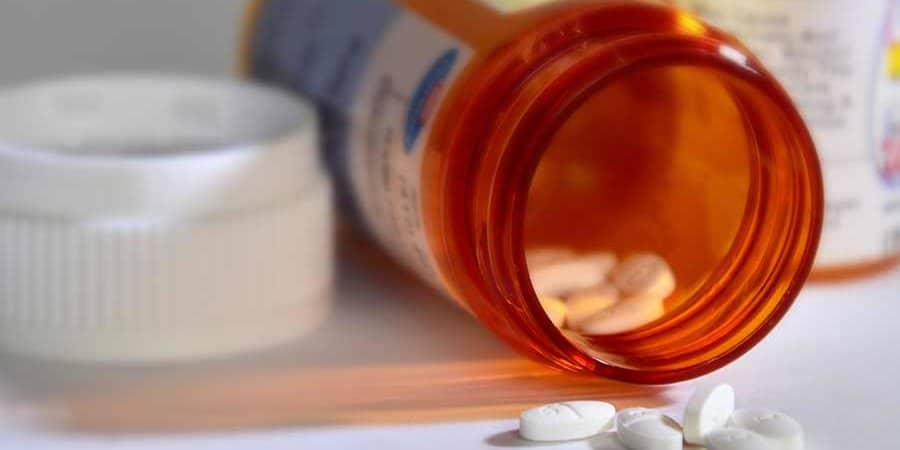
The first and most important thing to know about Adderall is that it is an amphetamine. This puts it in the same general family as methamphetamine street drugs, such as crystal meth, and therefore offers the opportunity for abuse.
What Are Amphetamines
Amphetamines were first discovered in 1910, and have been used for a wide variety of medicinal purposes throughout the years; including weight-loss, narcolepsy, attention disorders, and even as a way to counteract anesthesia. They are a class of drugs known as psychostimulants (1). Drugs of this type affect the brain and central nervous system of the user by stimulating increased neural activity. This increase leads to several effects:
- Wakefulness
- Hyperactivity
- Elevated mood
- Enhanced concentration
- Increased physical performance
- Greater ability to read facial expressions
- Talkativeness
- Reduced impulse control
There are many negative side-effects associated with amphetamines, particularly when they are taken in unregulated doses. Most common among these are:
- Insomnia
- Agitation
- Paranoia
- Tachycardia (increased heart-rate)
If amphetamines are abused, especially for a lengthy period of time, a state known as amphetamine toxicity (2) might occur. The complications of this type of toxicity can ultimately be fatal. The symptoms of amphetamine toxicity include:
- Gastrointestinal bleeding
- Renal (kidney) failure
- Hyperpyrexia (dangerously high body temperature)
- Hyponatremia (low sodium content in the blood)
- Permanent mood changes
- Cardiomyopathy (reduction in the heart’s ability to pump blood)
- Vasculitis (destruction of blood vessels)
- Long-term or permanent brain damage
All of these effects can occur by taking any amphetamine, including prescribed medications such as Adderall, Dextrostat, Dexedrine, ProCentra, Zenzedi, Vyvanse, and Desoxyn.
Adderall Information
Adderall is the brand name given to a mixture of amphetamine and dextroamphetamine (3). These are both psychostimulants which increase the neural activity in the brain, often creating a sense of euphoria along with enhanced awareness.
Ordinarily, Adderall and similar amphetamine medications are prescribed for Attention Deficit/Hyperactivity Disorder (ADHD), and have been found to assist children and some adults who have trouble focusing on tasks. Adderall is also prescribed for narcolepsy.
Though Adderall is an amphetamine, the actual dosage amphetamine dosage is relatively low, particularly when compared with recreational drugs. This greatly reduces the risk of potential hazards and harm if the medication is taken as prescribed, though it does still bear a strong possibility of mental and physical reliance. The potential for abuse exists should any more than a physician-prescribed dose be taken.
Coping with Amphetamine Reliance or Addiction
The Drug Enforcement Administration (DEA) qualifies amphetamines as Schedule II controlled substances (4). Drugs in this category have a high potential for serious physical and psychological dependence, which makes them extremely likely to be abused.
They are also intensely difficult to recover from for those who become addicted.
Anyone struggling with dependence on Adderall or any other amphetamine has a greater chance of recovery success if they utilize outside treatment. Temporary residential treatment might be helpful to assist in treating withdrawal, with Partial Hospitalization (PHP) being strongly suggested.
For long-term care, it is highly recommended that the individual seek out Intensive Outpatient (IOP) or Outpatient (OP) recovery programs. Sober living houses or recovery homes that provide a stable, supportive environment have likewise been shown to greatly improve the chance of success for anyone coping with amphetamine abuse or dependency (5).
Though the health risks associated with Adderall and other amphetamine abuse are significant, most people are able to make a full recovery of their health and mental faculties given the proper time and treatment.
How To Get Help For Amphetamineor Adderall Addiction
Harmony Health Group is dedicated to providing comprehensive care through our drug and alcohol rehab facilities in Florida, Massachusetts, North Carolina, New Jersey, and Tennessee. Our specialized residential treatment and IOP rehabilitation treatment address a wide range of substance use disorders, including alcohol, drug, cocaine, heroin, meth, benzo, and prescription drug addictions. We also offer extensive support for mental health issues such as anxiety and depression. Our team of seasoned professionals employs evidence-based treatments to create personalized recovery plans tailored to each individual’s needs, ensuring you receive the highest standard of care.
We understand that accessibility to quality care is crucial, which is why we accept insurance from major providers like Aetna, Cigna, Blue Cross Blue Shield, and United Healthcare. For those without insurance, Harmony Health Group offers private pay options to make treatment more affordable. Our goal is to ensure that financial barriers do not prevent anyone from accessing the help they need. Contact us today to discuss the variety of treatment options available and take the first step towards a healthier, more fulfilling life. Our compassionate team is here to support you every step of the way, guiding you towards a brighter future.
If you are ready to get free from drug abuse, give us a call today
Sources
1. https://pubchem.ncbi.nlm.nih.gov/compound/amphetamine
2. https://pubmed.ncbi.nlm.nih.gov/16088595/
3. https://dailymed.nlm.nih.gov/dailymed/drugInfo.cfm?setid=f22635fe-821d-4cde-aa12-419f8b53db81
4. https://www.deadiversion.usdoj.gov/schedules/index.html
5. https://pubmed.ncbi.nlm.nih.gov/20299175/
